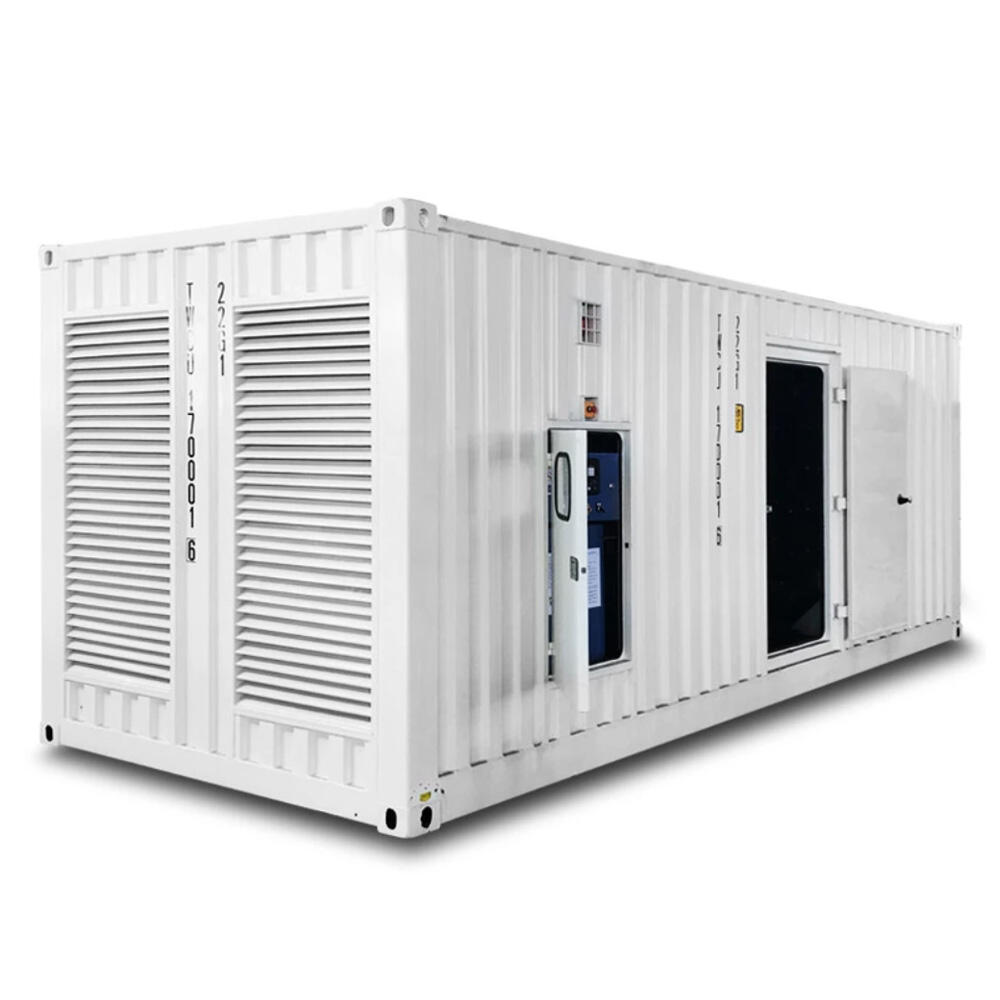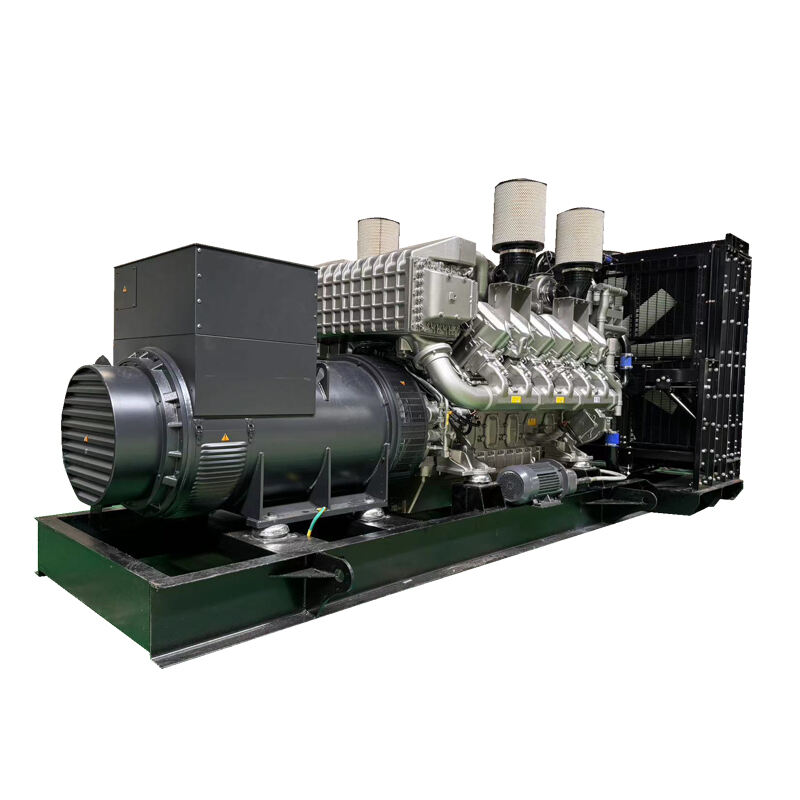Can a Diesel Generator Be Used as a Primary Power Source for Off-Grid Locations?
Electricity is essential for modern living, but in many parts of the world, grid connectivity remains unreliable or nonexistent. In such scenarios, alternative energy sources are necessary to provide power for homes, businesses, hospitals, construction sites, mining operations, and remote industrial projects. Among the most common solutions is the diesel generator, a proven and durable technology that can deliver power in virtually any location.
But the question arises: Can a diesel generator be used as a primary power source for off-grid locations? The short answer is yes, but with several considerations. While a diesel generator is capable of serving as the main energy provider, factors such as cost, environmental impact, efficiency, and maintenance must be carefully evaluated. This article explores the feasibility, benefits, challenges, and best practices for using a diesel generator as the primary power supply in off-grid environments.
Understanding the Diesel Generator
A diesel generator is a machine that converts the chemical energy stored in diesel fuel into electrical energy. It is composed of two main parts: a diesel engine and an alternator. The engine burns diesel fuel to produce mechanical energy, which drives the alternator to generate electricity. Diesel generators are valued for their reliability, long lifespan, and ability to produce continuous power in a wide range of operating conditions.
They come in different sizes, from small portable units that provide power for households to massive industrial-grade generators capable of supplying entire factories or communities. This scalability makes them a popular choice for off-grid areas that lack stable access to electricity.
Why Consider a Diesel Generator for Off-Grid Power?
Reliability and Continuous Operation
One of the biggest advantages of a diesel generator is its ability to operate continuously for long durations. Unlike solar or wind energy, which are intermittent and dependent on weather conditions, a diesel generator can run 24/7 as long as there is fuel available. This makes it an ideal option for critical operations such as hospitals, military bases, and remote industrial projects where power interruptions cannot be tolerated.
High Power Output
Diesel generators can produce significant amounts of electricity compared to many renewable systems. This makes them well-suited for powering large-scale operations such as mining camps, construction sites, and agricultural facilities where high energy demand is constant.

Proven Technology
Diesel generator technology has been in use for decades, making it a well-understood and trusted energy solution. Spare parts, technical expertise, and servicing options are widely available in most parts of the world.
Fuel Availability
Diesel fuel is widely available globally, even in regions where infrastructure is limited. This accessibility makes refueling easier compared to alternatives such as natural gas or hydrogen, which require more complex supply chains.
Challenges of Using a Diesel Generator as the Primary Power Source
While a diesel generator offers significant benefits, there are challenges associated with making it the main source of electricity in off-grid areas.
High Operating Costs
Diesel fuel is expensive, especially when transported to remote locations. Running a diesel generator continuously as the primary power source can result in very high fuel costs, which may not be sustainable over the long term.
Environmental Impact
The combustion of diesel fuel releases pollutants such as carbon dioxide, nitrogen oxides, particulate matter, and sulfur oxides. These emissions contribute to air pollution and climate change. When used as the primary power source, a diesel generator’s environmental impact can be significant.
Noise Pollution
Diesel generators are typically loud, producing noise levels that may disturb communities, workers, or local wildlife. Prolonged noise exposure can also cause health issues, including hearing damage and stress.
Maintenance Requirements
Operating a diesel generator around the clock requires rigorous maintenance. Regular servicing, including oil changes, filter replacements, and component inspections, is essential to ensure reliability. Failure to maintain the equipment properly can lead to breakdowns and costly repairs.
Limited Fuel Storage
Diesel fuel must be stored safely to prevent contamination and spills. Large quantities of fuel require secure storage facilities, which can add to the logistical challenges and costs of running a diesel generator as the main energy source.
Comparing Diesel Generators to Other Off-Grid Solutions
To fully understand the role of a diesel generator in off-grid power systems, it is helpful to compare it with alternative technologies.
Solar Power: Solar panels are environmentally friendly but dependent on sunlight. Battery storage is required for night-time use, which adds cost and complexity.
Wind Power: Wind turbines provide renewable energy but rely on consistent wind speeds. Not all locations are suitable for wind generation.
Hydropower: Small hydro systems can deliver reliable electricity in areas with flowing water, but geographical limitations restrict their application.
Biomass and Other Renewables: These can provide clean energy but often require local availability of raw materials.
While renewables are gaining popularity, diesel generators remain unmatched in terms of immediate reliability, scalability, and independence from weather conditions. In many cases, hybrid systems that combine a diesel generator with renewable sources provide the best balance between reliability and sustainability.
Strategies to Minimize Drawbacks
If a diesel generator is to be used as the primary power source for an off-grid location, certain measures can help minimize its drawbacks.
Use of Cleaner Fuels
Switching to ultra-low sulfur diesel or blending diesel with biodiesel can reduce harmful emissions. This helps lower the environmental footprint while maintaining generator performance.
Advanced Emission Control Systems
Installing technologies such as particulate filters and catalytic converters can minimize the release of pollutants. These systems improve air quality and ensure compliance with environmental regulations.
Efficient Load Management
Running a diesel generator at its optimal load improves fuel efficiency and reduces wear and tear. Smart controls and load-sharing between multiple units can help balance demand more effectively.
Noise Reduction Measures
Acoustic enclosures, silencers, and proper site planning can help reduce noise levels, making diesel generator use less disruptive in residential or sensitive environments.
Regular Maintenance Programs
Establishing a strict maintenance schedule ensures that the diesel generator remains reliable and efficient. Preventive maintenance reduces downtime and extends equipment lifespan.
Integration with Renewable Energy
Hybrid systems that combine diesel generators with solar panels, wind turbines, or battery storage are increasingly popular. These systems allow renewables to handle most of the energy load during favorable conditions, while the diesel generator provides backup power when renewable output is insufficient. This approach reduces fuel consumption, costs, and emissions.
Real-World Applications
Remote Communities
In areas without grid access, such as islands or rural villages, diesel generators often serve as the main source of power. However, many communities are now adopting hybrid systems to reduce reliance on diesel.
Mining and Oil Operations
Diesel generators are widely used in remote mining and drilling sites where power demand is high and continuous. Their durability and ability to provide large-scale power make them indispensable in these industries.
Humanitarian Aid and Disaster Relief
During emergencies such as natural disasters, diesel generators are often deployed as the primary source of electricity to support medical facilities, refugee camps, and communication systems.
Military Bases
Military operations frequently rely on diesel generators in off-grid areas due to their reliability, portability, and ability to support critical missions under demanding conditions.
Future Outlook
As the global focus shifts toward sustainability, the role of diesel generators is also evolving. While they remain critical for off-grid power, their future lies in integration with renewable energy technologies. Hybrid systems that balance diesel generators with solar, wind, and energy storage will dominate off-grid solutions in the coming decades.
Additionally, ongoing research into cleaner fuels and advanced engine technologies promises to reduce the environmental impact of diesel generators. Eventually, as renewable infrastructure becomes more affordable and widely available, diesel generators may serve primarily as backup or supplementary power sources rather than the main supply.
Conclusion
Yes, a diesel generator can be used as a primary power source for off-grid locations. Its reliability, scalability, and independence from weather conditions make it a practical solution where uninterrupted electricity is essential. However, challenges such as high operating costs, environmental impact, noise pollution, and maintenance requirements cannot be overlooked.
By adopting strategies such as cleaner fuels, emission control systems, load management, noise reduction, and hybrid integration with renewables, the drawbacks of using a diesel generator as the main power source can be significantly minimized.
In today’s world, the most sustainable approach for off-grid power often involves combining a diesel generator with renewable energy systems. This ensures reliability while reducing costs and environmental damage, creating a balanced and forward-looking energy solution.
FAQ
Can a diesel generator run 24/7 in off-grid locations?
Yes, diesel generators can operate continuously if properly maintained and supplied with sufficient fuel.
Is a diesel generator cost-effective as a primary power source?
It can be cost-effective in the short term due to its reliability, but high fuel costs and maintenance make it expensive in the long term compared to renewables.
How can the environmental impact of a diesel generator be reduced?
Using cleaner fuels, installing emission control systems, and integrating with renewable energy sources are effective ways to reduce impact.
Are hybrid systems better than relying only on a diesel generator?
Yes, hybrid systems combining renewables with diesel generators reduce fuel consumption, emissions, and costs while ensuring reliable power.
What industries rely most on diesel generators as primary power sources?
Mining, oil drilling, remote communities, military bases, and disaster relief operations commonly depend on diesel generators.
Table of Contents
- Can a Diesel Generator Be Used as a Primary Power Source for Off-Grid Locations?
- Understanding the Diesel Generator
- Why Consider a Diesel Generator for Off-Grid Power?
- Challenges of Using a Diesel Generator as the Primary Power Source
- Comparing Diesel Generators to Other Off-Grid Solutions
- Strategies to Minimize Drawbacks
- Real-World Applications
- Future Outlook
- Conclusion
-
FAQ
- Can a diesel generator run 24/7 in off-grid locations?
- Is a diesel generator cost-effective as a primary power source?
- How can the environmental impact of a diesel generator be reduced?
- Are hybrid systems better than relying only on a diesel generator?
- What industries rely most on diesel generators as primary power sources?

